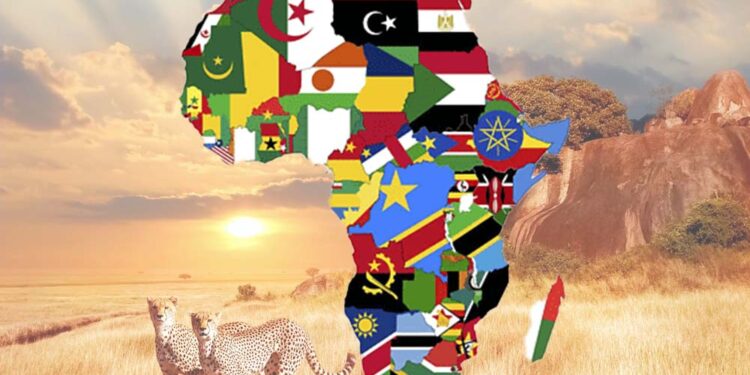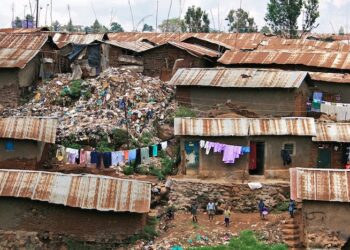Introduction
Pre-colonial resource distribution meant that most families had complete control over the resources they used and paid little to no taxes or rent (Stephen, 1969). For example, the clan system in Ghana was so well-organised that a man from Brong might go hundreds of miles to Fante and meet a stranger who just so happened to be a member of his own clan and be treated to food and hospitality. One might cite a plethora of examples to demonstrate how the family concept dominated African development during the communal phase. It had an impact on labour and land, the two main production components, as well as the distribution system (Rodney, 1972). However, for decades now, the management of resources in Africa specifically in Ghana has become a focal point of economic discussion as well as protest especially as neoliberal policies have led to the privatisation of many common resources.
This article explores how these policies impact local communities by drawing on biblical insight, specifically Matthew 13: 12, which warns of the dangers of losing what one already possesses. By examining case studies such as the privatisation of the keta lagoon, CISA analyst seek to uncover the profound implication of resource mismanagement in Africa.
Neoliberalism Through the Lens Of Matthew 13:12
In order to revive their economies, many African countries including Ghana were given financial aid by the world bank in exchange for the implementation of strict neoliberal policies in 1983.
Neoliberalism, with its emphasis on free markets, privatisation, and deregulation, fundamentally reshapes economic landscapes. It basically promotes the principle of market-driven resource allocation, often at the expense of social welfare and community needs. Neoliberalism, according to Navarro (2020), is the dominant ideology within many national and international institutions such as the World Health Organization, International Monetary Fund, World Bank, Central European Bank, European Parliament, and European Commission, among many others. The consequences of its application have been enormous, and it has greatly contributed to the establishment of conditions that favoured an increase in the expansion of individual cooperation and their profit margin.
Neoliberalism has been the doctrine arguing for minimum government intervention within the economy, perceiving free markets through the driving of individual enterprise as the most effective means towards growth and development (Balan, 2023). This philosophy encourages the privatisation of public assets on the premise that the release of ownership to private hands will enhance efficiency and productivity (Harland, 2009). This has usually resulted in the commodification of basic resources-water, land, and minerals-that conventionally form the support of local communities (Orihuela et al., 2022). In this scheme, classes that are already capitalised and privileged in terms of access to resources are in a better position to exploit privatisation opportunities and further consolidate their wealth. Poorer communities that rely on common resources see access limited or entirely taken away from them, thereby losing the little they had. The same dynamics are expressed in the biblical warning as seen in Matthew 13:12: “Whoever has will be given more, and they will have an abundance. Whoever does not have, even what they have will be taken from them.” This dynamic is reflected in one major case study in Ghana that we shall consider in the following section.
Case study: Privatisation of Portion of Keta Lagoon
For centuries, residents in Adina and adjoining communities and even those from far have depended on the keta lagoon for livelihood. While the women depended on it for salt, the men depended on it for fishing, and this has been passed on from one generation to another until the year 2010 when the Ghana government granted large-scale salt production companies covering over an area of 20,000 acres in and around the Keta lagoon enclave alone. These have displaced the indigenous small-scale producers who, for centuries, have been producing salt on an informal basis. This has raised the spectre of broader conflict between affected communities and the large-scale company. The granting of these leases reflects a state-growing preference for large-scale mining projects that has moved beyond the traditional minerals-where large-scale companies dominate-to non-traditional minerals, which have historically been dominated by artisanal and small-scale producers.
Disorderly dispossession of communities and livelihoods is not new to the extractives industry. Accumulation by dispossession, with large-scale ‘grabbing’ of land and natural resources by private capital has been shown by Harvey (2014), to be typical of the dynamics of contemporary capitalist expansion, and was analysed through the lens of neoliberalisation by Lesutis in 2019. Privatisation of the lagoon, a common asset for the entire community, by a foreign entity, in turn, meant loss of traditional livelihoods within that very community. The local fishermen have been displaced, and their access to this lagoon has been severely restricted. More so, the remaining quality and quantity of water that the community needs have also been reduced, as the mining operations use the same water reservoirs used by locals. This threatens their health and well-being and also raises serious questions about water scarcity.
The environmental impacts have been tremendous as well. The area allotted for the operations of Kensington, now Seven Seas Salt limited, was supposed to be a Ramsar site for the protection of endangered species and also served as a buffer for local communities during flooding. Degradation of this site endangers biodiversity and ecological balance that local communities rely on. Basically, this confirms the argument of Adam, Owen, & Kemp, (2015) and Satiroglu & Choi (2015) that on a large-scale, resource exploitation has been related to livelihood loss as well as environmental degradation coupled with rising poverty levels in communities where such exploitation takes place. With resources they needed for sustenance now being owned by a foreign company, the locals are left with limited water and other resources, an expression of Matthew 13:12 essentially.
Conclusion
Neoliberalism offers, from the perspective of Matthew 13:12, an incisive understanding of the socio-economic inequalities at its very core. The privatization of common resources in Africa, just as has been shown through the examples of Keta Lagoon, becomes a crystallized form of the Matthew 13:12 warnings where the little people have been taken away from them by capitalist who have more. With these challenges, there is a pressing need for policy reforms that place communities’ rights and sustainable resource management at the centre. Indeed, in biblical insight, there is a great urge in levelling the playing field in resource management to clog the wheels in favour of the rights and needs of the local people over private interests. The directions of this economic model remain very clear; what is called for is an in-depth paradigm shift to ensure that such abundance within resources translates into the sharing of all people, rather than dispossession and marginalisation which is common with neoliberal policy processes. The protection of the rights of access by local people to vital resources and their involvement in decision-making processes can only ensure an equitable development and wellbeing of future generations.
Reference
Adam, A., Owen, J. R., & Kemp, D. (2015). Households, livelihoods and mining-induced displacement and resettlement. The Extractive Industries and Society, 2(3), 581-589. https://doi.org/10.1016/j.exis.2015.05.002
Balan, A. (2023). Neoliberalism, privatisation and marketisation: The implications for legal education in England and Wales. Cogent Education, 10(2). https://doi.org/10.1080/2331186X.2023.2284548
Harland, T. (2009). The University, neoliberal Reform and the liberal educational ideal. In M. Tight, J. Huisman, K. H. Mok, & C. C. Morphew (Eds.), The Routledge International Handbook of higher education (pp. 511–521). Routledge.
Harvey, D. (2014). Seventeen Contradictions and the End of Capitalism. Oxford University Press, USA.
Lesutis, G. (2019). Spaces of extraction and suffering: Neoliberal enclave and dispossession in Tete, Mozambique. Geoforum, 102, 116-125. https://doi.org/10.1016/j.geoforum.2019.04.002
Navarro V. (2020). The Consequences of Neoliberalism in the Current Pandemic. International journal of health services: planning, administration, evaluation, 50(3), 271–275. https://doi.org/10.1177/0020731420925449
Orihuela, J. C., Pérez Cavero, C., & Contreras, C. (2022). Extractivism of the poor: Natural resource commodification and its discontents. The Extractive Industries and Society, 9, 100986. https://doi.org/10.1016/j.exis.2021.100986
Rodney, W. (1972). How Europe Underdeveloped Africa. London: Bogle-1’Ouverture Publications.
Satiroglu, I., & Choi, N. (2015). Development-Induced Displacement and Resettlement. Routledge.
Stephen, H (1969). Economic Forms in Pre-Colonial Ghana, Centre Discussion Paper, No. 79, Yale University, Economic Growth Centre, New Haven, CT































